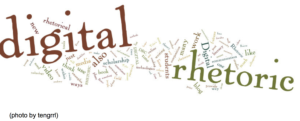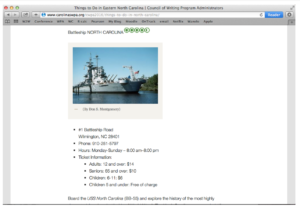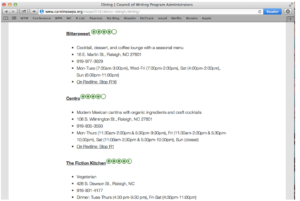Guest Blogger Jordan Stanley ’17
 A hallmark of the college experience is hunting down and securing the perfect internship. Well, maybe perfect isn’t the best word, but hopefully one that either informs the direction of your professional development or enriches a particular skill set. The value of an internship extends far beyond getting a test run at your dream job. Sometimes the most important internships are the ones that you realize are a poor fit. In other cases, you might gain experiences during your internship that you wouldn’t have expected to like. These discoveries can be equally significant in informing your career path.
A hallmark of the college experience is hunting down and securing the perfect internship. Well, maybe perfect isn’t the best word, but hopefully one that either informs the direction of your professional development or enriches a particular skill set. The value of an internship extends far beyond getting a test run at your dream job. Sometimes the most important internships are the ones that you realize are a poor fit. In other cases, you might gain experiences during your internship that you wouldn’t have expected to like. These discoveries can be equally significant in informing your career path.
This is why—though it is not required in all disciplines—as a Professional Writing & Rhetoric major, you must have completed at least one PWR related internship in order to graduate. I had the privilege for the past two academic semesters of working under Dr. Jessie Moore for CarolinasWPA, an experience that has both improved my skills as a web writer and complicated my views of applying rhetorical theory to technical writing.
Carolinas Writing Program Administrators (CarolinasWPA) is an organization that strives to facilitate the communication between a diversity of universities across North and South Carolina on writing program related matters. This can include writing centers, first-year writing programs, professional writing pedagogy, hiring and budgeting policy, and more. My role as an intern for the organization consisted mostly of web writing—composing across a variety genres— from long-form articles and to shorter blog posts, to informational e-pages for the Council of Writing Program Administrator’s 2016 Conference website, which CarolinasWPA is helping to host.
While I certainly gained meaningful experience from my long-form writing tasks for the CarolinasWPA blog, the more technical tasks I completed for the CWPA Conference site most shaped my takeaway from the internship. Since the conference is in Raleigh, it was my job to compile information on what dining options, city attractions, and North Carolina destinations conference goers can check out in their spare time. I will be frank: this work was tedious. One page might take four hours of sitting at my laptop, collecting information on a restaurant’s location, cuisine type, contact information, its proximity to the Raleigh public bus, etc.; rinse, and repeat. While I was formatting the layout for the pages, and inputting the information, I was not fully aware of the rhetorical strategies I was implementing. In retrospect, however, I am surprised at how rhetorically informed my process actually was.
In any internship, there will be tasks you are excited about and other tasks you are less excited about. In my case, it turned out that the latter was the most informative. In fact, after I conducted a rhetorical reflection of my work, I was extremely interested by it. In my Multimedia Rhetorics class this semester with Dr. Lindenmann, we explored the organizational logic of written text and the image. I combined this with the concepts of the rhetorical triangle that I learned in my Understanding Rhetoric class with Dr. Pope-Ruark. Within the professional context of the conference website, the information I was compiling was supplementary to the proprietary focus on conference details. So, keeping in mind the purpose of my work in relation to the audience—conference goers—my goal was to compile the large quantity lower stakes information in a way that was easily accessible to readers. I accomplished this largely through utilizing the strict reading pathways I could create using text and incorporating images when could communicate meaning in a more succinct way than the written word.
 Having the rhetorical strategies from my PWR classes in my back pocket turned what may have seemed to be a mundane task, into an opportunity to exercise my ability to create theoretically informed design and composition. I am very thankful to have had the opportunity to work with Dr. Moore and Dr. Pope-Ruark throughout this internship, finding a crossover between my academic and professional work.
Having the rhetorical strategies from my PWR classes in my back pocket turned what may have seemed to be a mundane task, into an opportunity to exercise my ability to create theoretically informed design and composition. I am very thankful to have had the opportunity to work with Dr. Moore and Dr. Pope-Ruark throughout this internship, finding a crossover between my academic and professional work.



 Follow
Follow